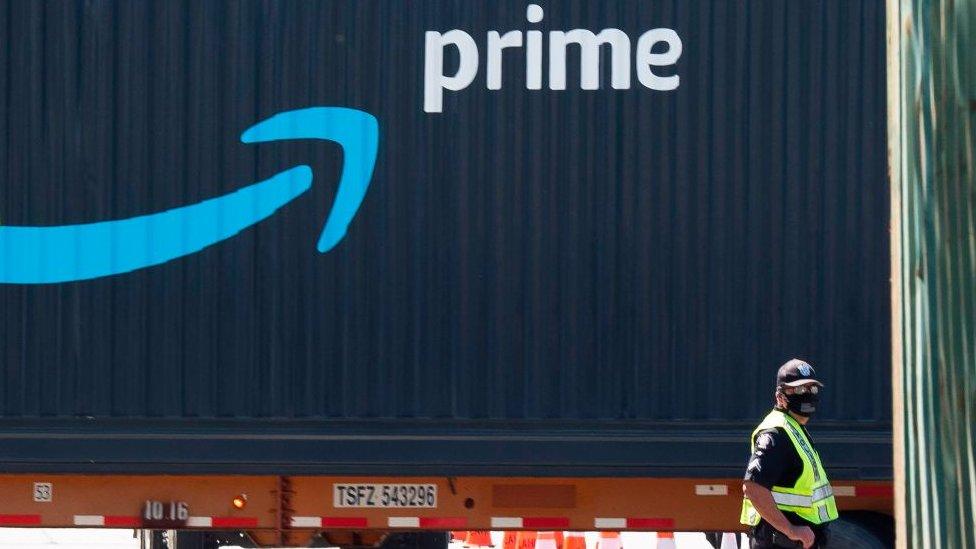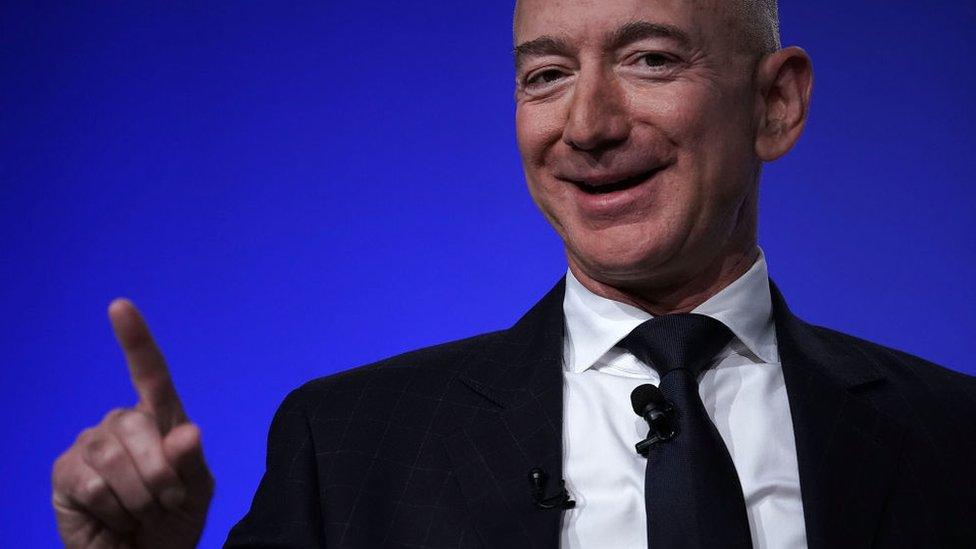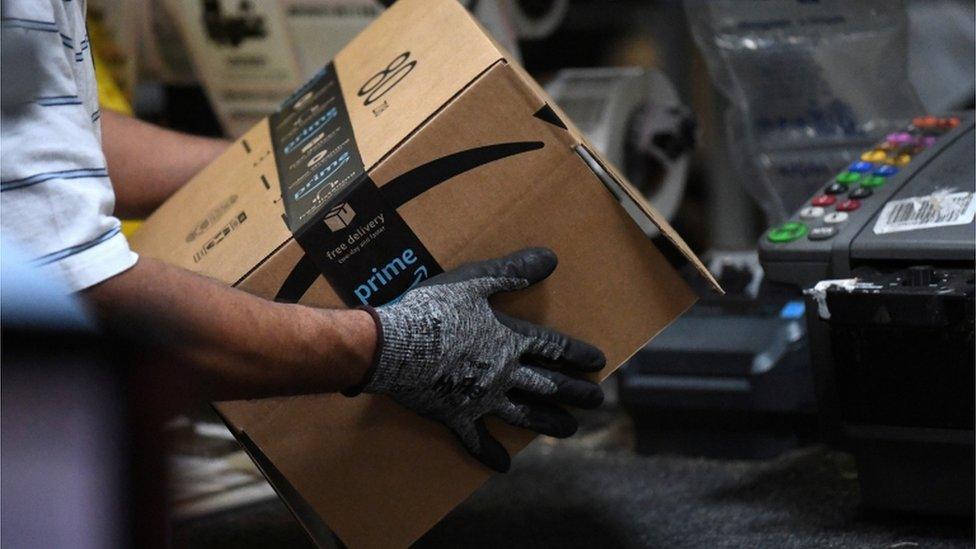US blacklists five Amazon foreign websites
- Published

Five of online retail giant Amazon’s foreign websites have been placed on a blacklist by the Trump administration.
Its e-commerce platforms in the UK, Germany, France, India and Canada have been added to a “notorious markets” register.
The US trade representative’s office said the sites facilitated the sale of counterfeit and pirated products.
Amazon said the move was politically motivated and that it has invested heavily to prevent illegal activities.
The trade representative’s office said that the adding of the Amazon sites was the result of complaints from US businesses over the sale of fake goods.
While the list carries no legal weight, it puts the spotlight on those companies included on it, especially when they are household names like Amazon.
Amazon described the inclusion of its sites as a “political act” motivated by President Donald Trump’s apparent dislike of Jeff Bezos, its founder and chief executive.
“This purely political act is another example of the administration using the US government to advance a personal vendetta against Amazon,” the company said in a statement.
The online shopping giant also said it has made significant investments in technology to stop counterfeit products from being sold on its platforms. Amazon’s US website was excluded from the list.
According to the report, complaints said the Amazon sites didn’t provide clear information about sellers and that the process to remove platforms selling counterfeit goods was “lengthy and burdensome”.
In Amazon’s statement it said it had invested significantly in tackling the problem, and had blocked more than 6 billion bad listings before they were published to the platform last year.
“We are an active, engaged stakeholder in the fight against counterfeit,” an Amazon spokesperson added.
Mr Trump has frequently clashed with Amazon and personally with Mr Bezos, who owns the Washington Post newspaper. In the past Mr Trump has said that Amazon doesn’t pay enough in taxes.
Last year, Amazon challenged the US Department of Defense in court after being passed over for a $10bn (£8bn) Pentagon cloud computing contract, which went to Microsoft. The deal is currently being blocked while federal judges investigate the claims.
- Published15 April 2020

- Published31 March 2020
